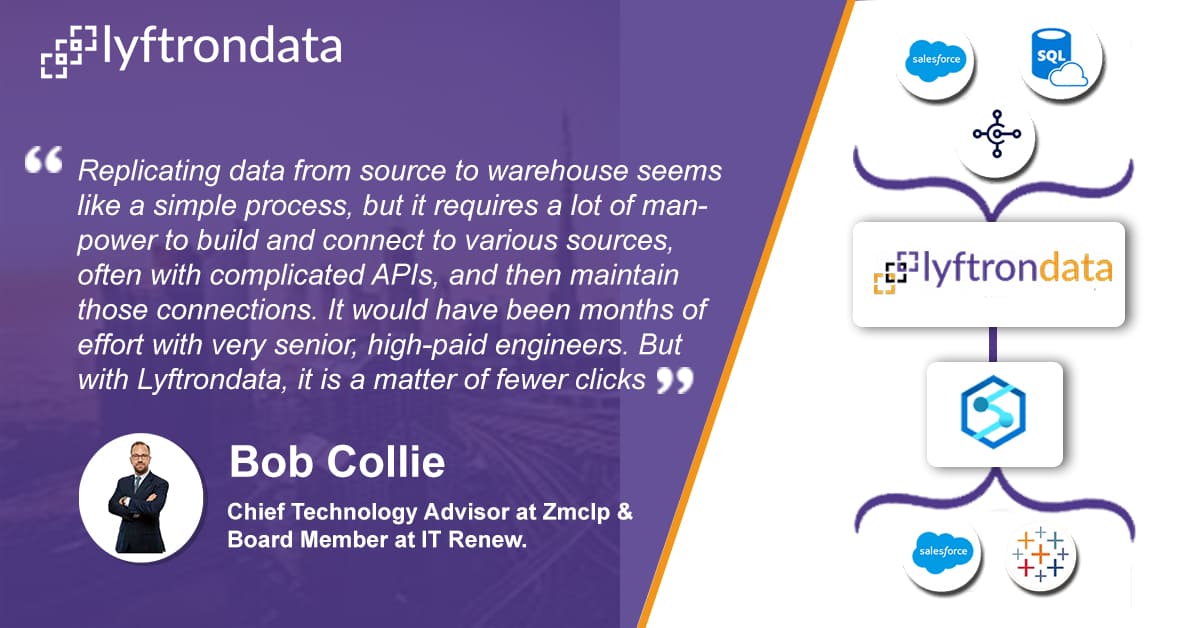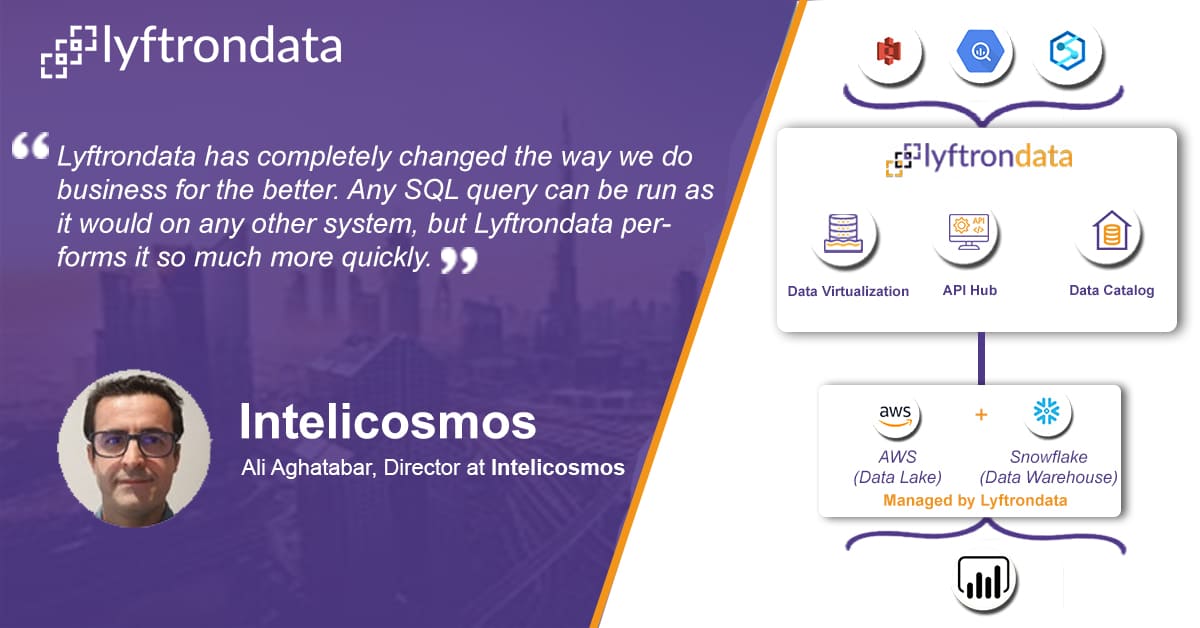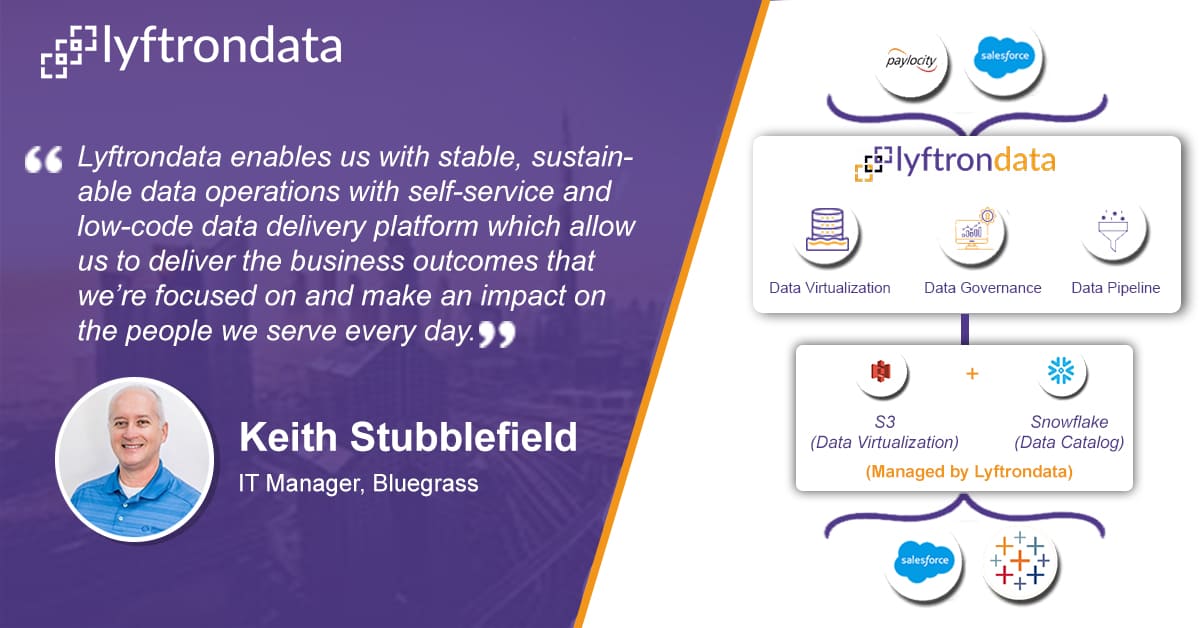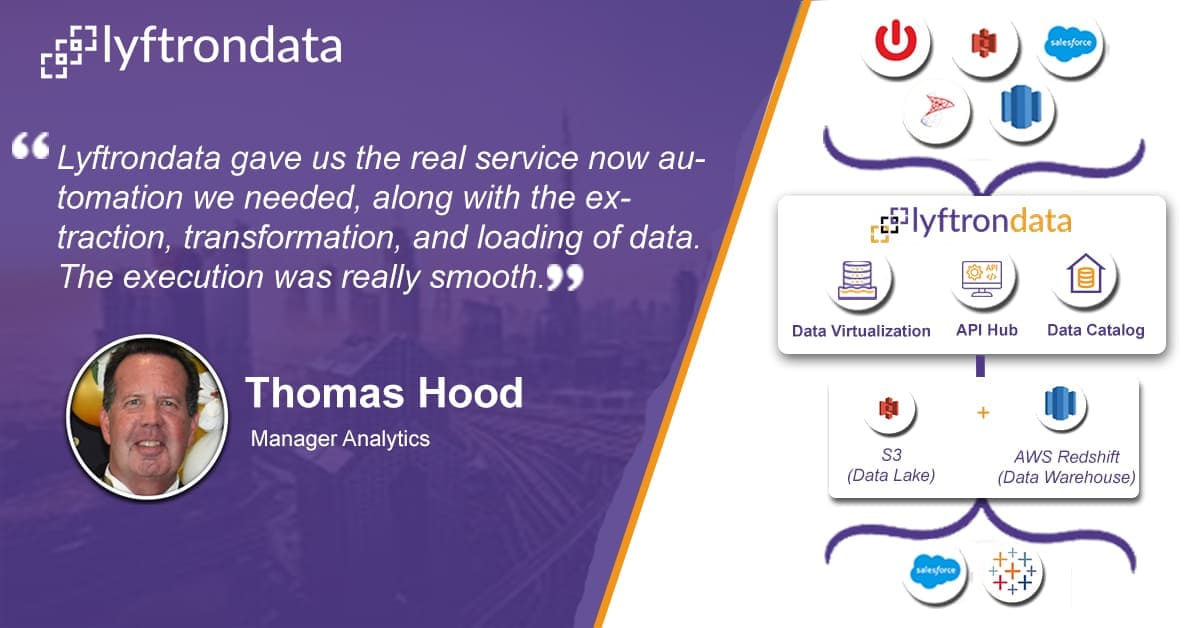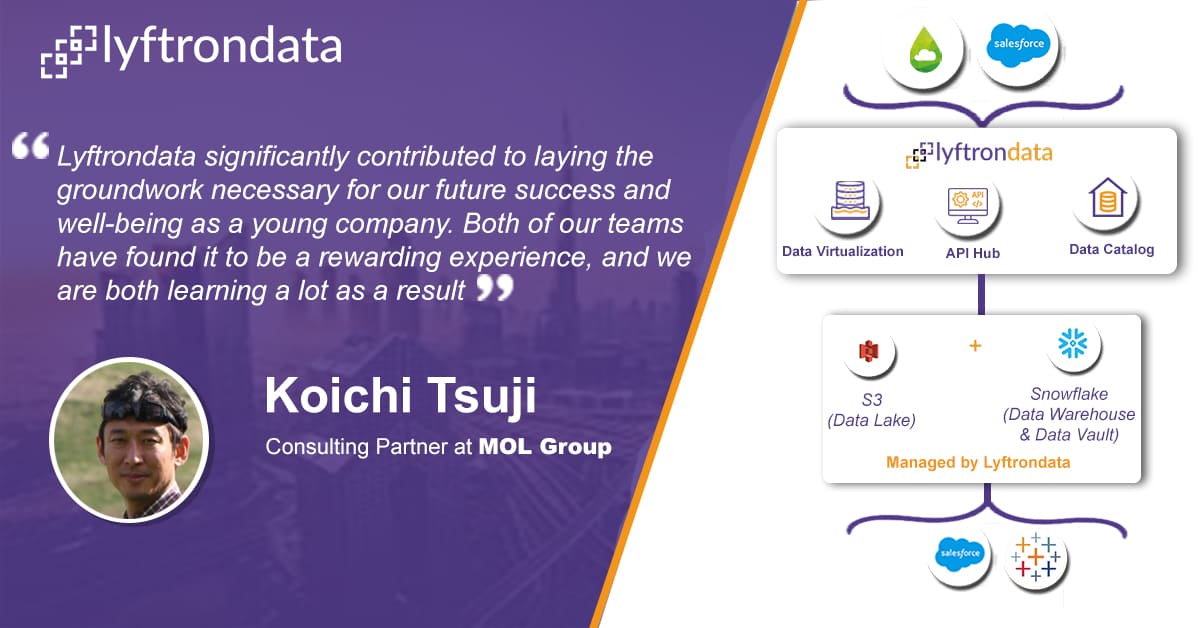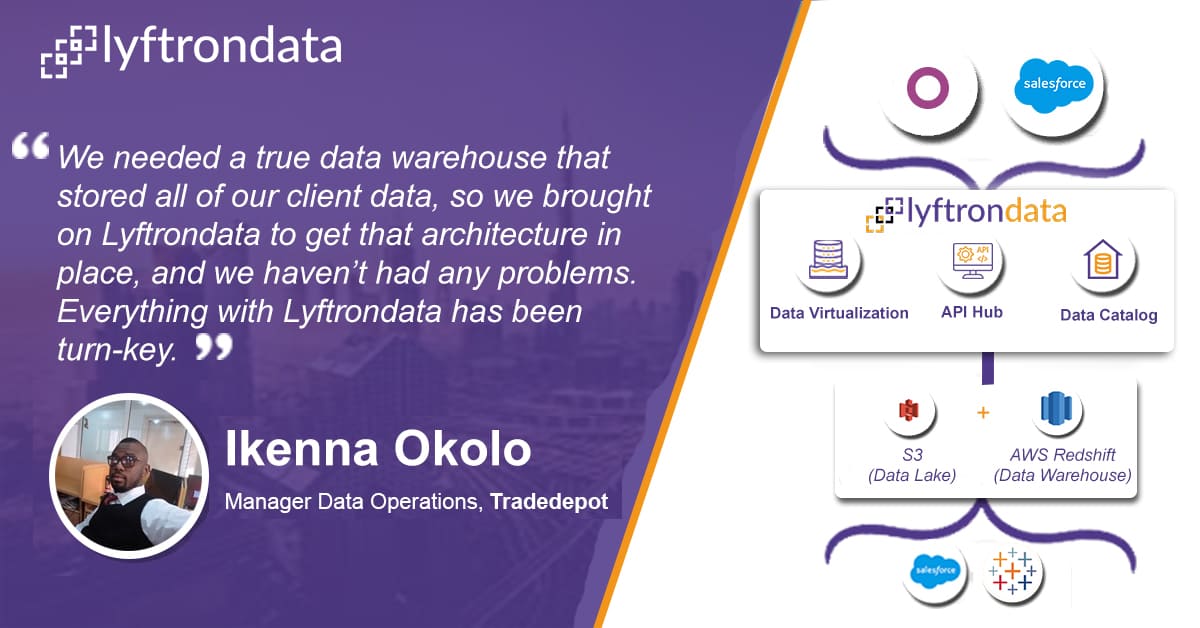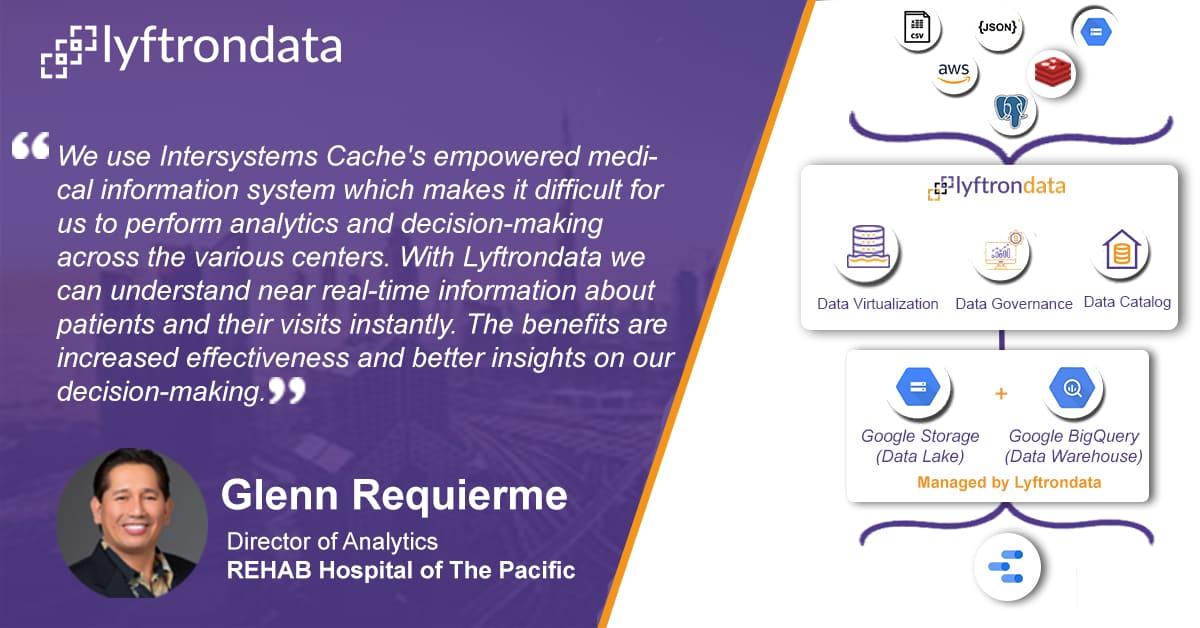200X Acceleration at
1/10th of the cost
Zero
maintenance
No credit card
required
Zero coding
infrastructure
Multi-level
security
Simplify Iceberg Minio integration in
4 simple steps
Create connections
between Iceberg Minio and targets.
Prepare pipeline
between Iceberg Minio and targets by selecting tables in bulk.
Create a workflow
and schedule it to kickstart the migration.
Share your data
with third-party platforms over API Hub

Why choose Lyftrondata for Iceberg Minio Integration?
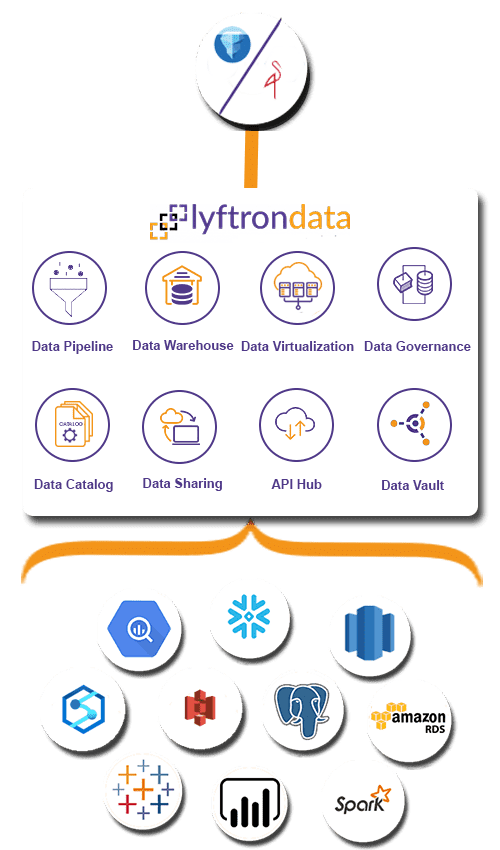

Simplicity
Build your Iceberg Minio pipeline and experience unparalleled data performance with zero training.

Robust Security
Load your Iceberg Minio data to targets with end-to-end encryption and security.

Accelerated ROI
Rely on the cost-effective environment to ensure your drive maximum ROI.

Customer's Metrics
Track the engagement of your customers across different channels like email, website, chat, and more.

Improved Productivity
Measure the performance of your team and highlight areas of improvement.

360-degree Customer View
Join different data touch points and deliver personalized customer experience.
Hassle-free Iceberg Minio integration to the platforms of your choice
Migrate your Iceberg Minio data to the leading cloud data warehouses, BI tools, databases or Machine Learning platforms without writing any code.
Hear how Lyftrondata helped accelerate the data journey of our customers
FAQs
What is Iceberg Minio?
Iceberg MinIO refers to the integration of Apache Iceberg with MinIO, a high-performance, S3-compatible object storage system. Here's a breakdown of each component and their integration:
Apache Iceberg: This is an open table format for large-scale analytic datasets. It provides features like schema evolution, partitioning, and snapshot isolation, which are crucial for handling big data with high performance and reliability. Iceberg tables can be used with various data processing engines, including Apache Spark, Trino, and Apache Flink.
MinIO: MinIO is an open-source object storage server that implements Amazon S3 APIs. It is designed for high-performance and is often used as a cloud-native storage solution for applications requiring scalable storage.
What are the features of Iceberg Minio?
Schema Evolution:
Iceberg allows you to easily evolve table schemas over time without affecting the existing data or breaking queries.
Performance:
Optimized for fast reads and writes with features like file pruning and data skipping.
Metadata Management:
Uses a highly efficient metadata management system that scales with the size of the data.
What are the shortcomings of Iceberg Minio?
Compatibility Issues:
Feature Support: Some advanced features or specific functionalities of Apache Iceberg may not be fully supported by MinIO or may require additional configuration.
Version Compatibility: Ensuring compatibility between the versions of Iceberg, MinIO, and any data processing engines (e.g., Spark, Trino) can be challenging.
Complexity in Management:
Configuration and Tuning: Properly configuring and tuning MinIO and Iceberg to work together efficiently can be complex, especially for large-scale deployments.
Monitoring and Troubleshooting: Managing and troubleshooting issues in an integrated environment with Iceberg and MinIO may require specialized knowledge and tools.
Scalability Concerns:
Scaling Out: While MinIO is designed for scalability, there may be challenges in scaling out storage or managing distributed object storage in very large environments.
Data Consistency: Ensuring data consistency and handling concurrent operations can be more complex in a distributed object storage environment.
Make smarter decisions and grow your sales with Lyftrondata Iceberg Minio integration





